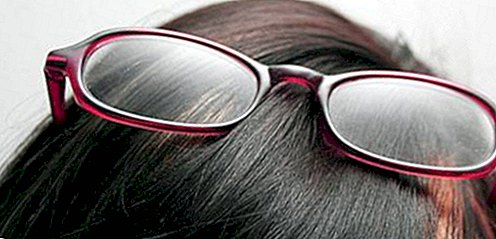Buy glasses - what should I pay attention to?

Spectacle frame or lenses - what do I look for first?
Looking at the optician directly for the most fashionable eyewear frame can end in disappointment. Because: Not every lens fits in every frame. For example, at high diopter values, above-average or borderless versions are often unsuitable. Therefore, it may be better to choose the lenses first - or at least to inquire which frames are possible.
How do I find the right spectacle frame?
First, think about which colors and which material are suitable for you and where your price limit lies. Then ask the optician to pick out suitable models. If you can not decide, have your picture taken with the frames and ask partners and friends for their opinion. Generally speaking: With a round face edged frame frames are more appropriate, with an angular face rather round. If you have an oval face, it's best to go with it - every frame fits. Tips: Glasses that make you younger, that are especially reputable or glamorous can be found in our effects oracle. How to find the right model for your face is available at www.sehen.de. For more tips on eyewear styling, visit www.brillenstyling.de.
Glass or plastic - which material is better?
The most commonly used material for eyeglass lenses is plastic. For a good reason: plastic is lightweight and unbreakable. In case of an accident you do not need to worry about splinters causing eye injuries. Glass (mineral or silicate glass) is much heavier, but thinner. In addition, it costs less and is less sensitive. Plastic glasses need an extra coating for a similar scratch resistance. For athletes may also come polycarbonate lenses in question, as they are extremely unbreakable and lightweight. However, polycarbonate lenses are not enough for the quality of vision because of disturbing color fringes.
High diopters and still thin lenses - is that possible?
With a vision deficiency of more than +/- 2 dioptres, the lenses become thicker: the stronger the ametropia, the thicker the lens. Thick glasses are heavy and not exactly attractive. Here, the "refractive index" helps: It indicates how much a light beam is deflected by a material. The higher the index, the thinner (and unfortunately more expensive) the glass will be.
Refracting glasses? Is that important?
Whoever wears glasses most of the time should definitely have them anti-reflective. This will save you annoying reflections, for example when driving in the dark. Coated lenses are hardly visible and they emphasize the eyes instead of hiding them. Another advantage: In the twilight, at night and in front of the computer, the eyes remain fit longer, as the anti-reflective glasses let more light through.
Anti-fogging system - which coatings are still available?
For plastic lenses, an additional hard layer is important. It ensures that the soft surface does not scratch so quickly, thereby extending the life of the glasses. If you want, you can also protect the glasses with a dirt-repellent coating (some suppliers include these in the hardcoat). Comfortable, but not a must, are anti-fog coatings. They prevent glasses from misting up and guarantee a clear view - helpful when you come out of the cold into a warm pub and look for your friends there. However, the coating must first be activated by a spray or special cleaning cloths.










